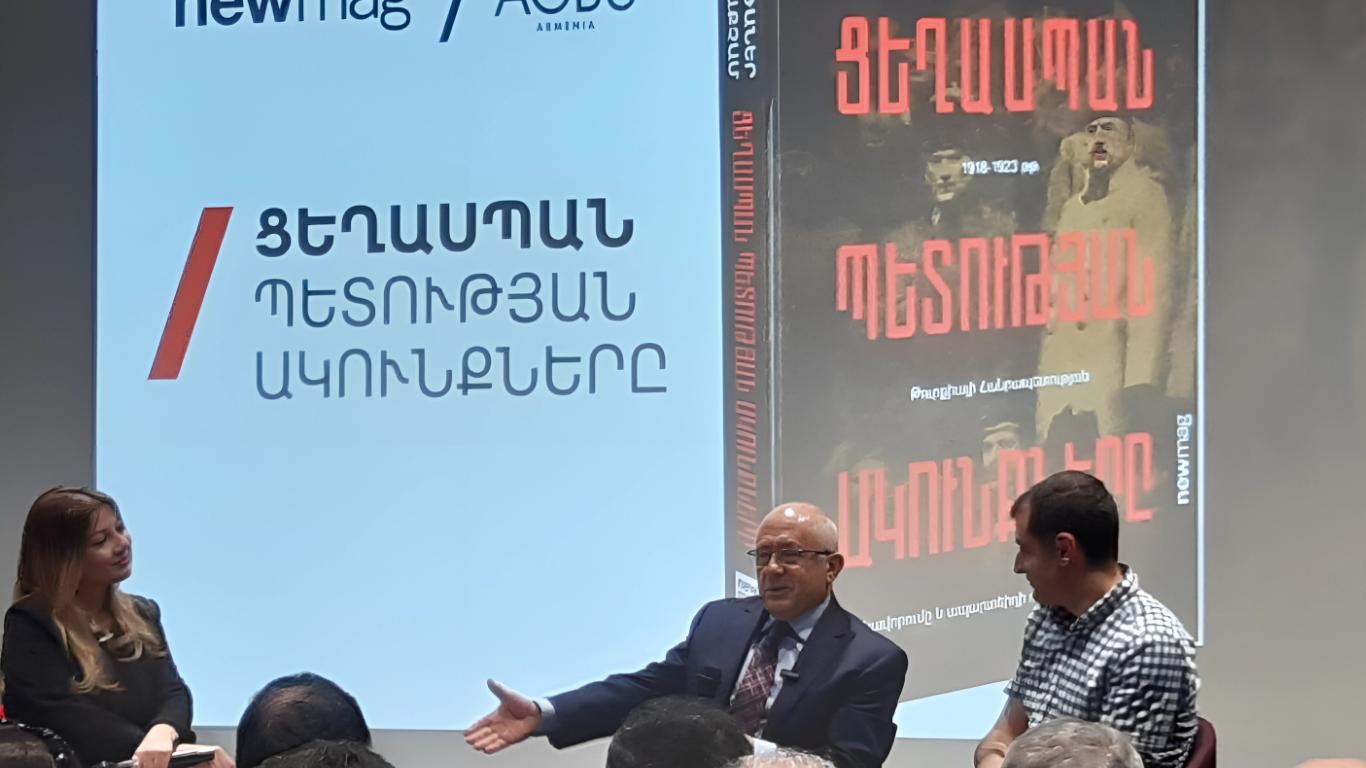
Taner Akçam: Republic of Turkey Based on Racial Discrimination
Today, in Yerevan, the Armenian General Benevolent Union hosted the presentation of the Armenian translation of Turkish historian Taner Akçam’s book The Origins of the Genocide State
The book presents the history of the decline of the Ottoman Empire and the formation of the Republic of Turkey in 1918-1923.
Akçam says the idea to write the book arose in 2023, the 100th anniversary of the establishment of the Republic of Turkey. In the book, the author presented how the apartheid regime was formed in the new Turkish republic.
“During this century, not a single Christian, Jew, Greek or Armenian existed in the high-ranking circles of Turkey. The Armenian population in Anatolia was about 5% in the 1920s. During that time, not even one of them was admitted to the military academy. Is this a coincidence or a clearly planned policy? I have answered this question myself. This is not revenge, but a clear trend. And I call it the apartheid regime,” Akçam said.
According to the historian, the foundations of the apartheid regime were laid from the very beginning of the creation of Turkey, when the constitution was being drafted. One of the deputies of the Turkish parliament at the time proposed to answer the question of who a citizen of the Republic of Turkey is.
“And the constitution stated that our citizen is a person who is a Sunni Muslim and speaks Turkish. Thus, the pyramid of the apartheid regime was formed with the Turks at the top, non-Turkish Muslims in the middle, and Christians, Jews at the bottom,” Akçam said.
Akçam raised another question. Why does everyone in Turkey talk about inequality, human rights, minority rights, but do not mention that the entire legislative system is built on the apartheid regime.
Akçam says this is because everyone considers the first five years of the current Turkish republic to be the years of the war for independence, and no one wants to look at that period of history from a different perspective.
In his book, Akçam presents specific examples of the manifestations of the apartheid regime.
“When a Turkish officer married an Armenian woman, a Turkish citizen, he was dismissed from the army on the charge that he had committed a crime. In other words, they considered marriage to an Armenian woman a crime,” says Akçam.
The book also presents facts that show that the Turkish state numbers the birth certificates and passports of its citizens to know which nation they belong to and to prevent national minorities from appearing in high-ranking positions.
The presentation of the Armenian version of the book is part of the “Genocide Week” events in Armenia.
Historical and expert discussions will also take place as part of “Genocide Week”, during which genocide scholars and historians will deliver reports, lectures, and scientific analyses.
Akçam is considered one of the most important scholars in the international recognition of the Armenian Genocide. He was one of the first Turkish intellectuals to not only publicly recognize but also condemn the Armenian Genocide and Turkey’s denialist policy.
He currently teaches at the Center for Holocaust and Genocide Studies at Clark University in Worcester, Massachusetts, where he headed the Department of Armenian Genocide Studies for many years.
 Videos
Videos Photos
Photos
Write a comment